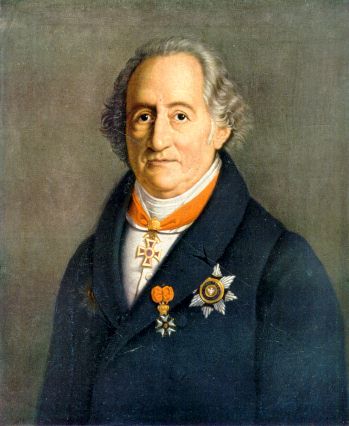Get Today in Masonic History into your Inbox. Sign up today for one of our email lists!
Need an article for your Trestleboard/Newsletter see our Use Policy
Johann Wolfgang von Goethe is Born

Today in Masonic History Johann Wolfgang von Goethe is born in 1749.
Johann Wolfgang von Goethe was a German writer and statesman.
Goethe was born on August 28th, 1749 in Frankfurt, Germany which was then part of the Holy Roman Empire. He was educated by his father and various tutors growing up. His father, who had been frustrated in his own endeavors was determined his children never suffered the same struggles. Goethe was educated in the languages of the time, including Latin. He was also educated in more physical pursuits such as dancing, riding and fencing. His true passion was for drawing and he created various pieces of art in his life.
For three years starting in 1765, Goethe began studying law. The memorization of old judicial rules by heart bored Goethe and he detested learning them. Instead he turned his attention to poetry. By 1768 he quit his studies, to the displeasure of his father. By 1770 Goethe published some of his first poems.
In 1771, Goethe returned to the law. He practiced for a short time and was fairly unsuccessful at it. In some of his earlier cases he was reprimanded for being over zealous. He began alternating between practicing the law and writing.
In 1775, Goethe's moderate level of fame gained the attention of Carl August, Duke of Saxe-Weimar-Eisenach who later became Grand Duke. Goethe worked at various times and in various capacities for the Duke.
In 1808, Goethe wrote the first part of a two part book. It is possibly one of his most well known works. Faust tells the story of a bet between God and Mephostopolies (The Devil). The Devil is challenged by God to tempt his favorite living scholar, Dr. Faust. In Faust Goethe repeated human sexuality, often erotically, as a theme which was common through much of his work. Goethe viewed human sexuality as a topic worth of poetic and artistic expression.
Goethe also studied the natural sciences. He wrote a varietyof books on the natural sciences. One of his theories, which is now called homology, was adapted by 19th century naturalists including Charles Darwin. Homology studies the theory of common descent among a pair of structures in two different species.
Goethe passed away on March 22nd, 1832.
Goethe was a member of Lodge Amelie Weimar, Germany.

